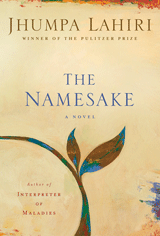Why does Jhumpa Lahiri have Gogol and Moushumi fall in love?
I mean, throughout their lives both of them struggle with the idea of self-determination. They don't want to do everything their parents tell them to and live the way their parents lived. They had both been "admonished to marry an American" (213). Moushumi even says that "by the time she was twelve she had made a pact, with two other Bengali girls she knew, never to marry a Bengali man" (213). So then why should the two of them, who were set up by their parents, end up falling in love? Why should they end up following in their parents' footsteps, doing exactly what their parents want them to do, instead of creating their own paths?
Well, I have a little theory...
I think that Lahiri is definitely saying that you shouldn't let others oppress you and tell you how to live your life. However, if you only do things to spite others, that's a whole new kind of oppression-- except this time, you're the one oppressing yourself... kind of a flashback to the Underground Man, am I right?
So, the moral of the story is this:
You shouldn't live your life only doing what others tell you to do. However, you also shouldn't live your life only doing what others tell you not to do. In the end, it's your life and not anyone else's, so just do what makes you happy.
But that's just my opinion. What do you think?
